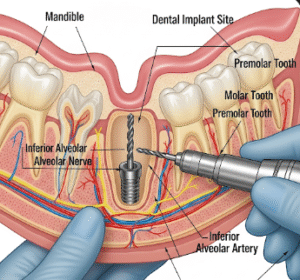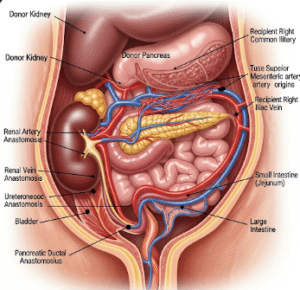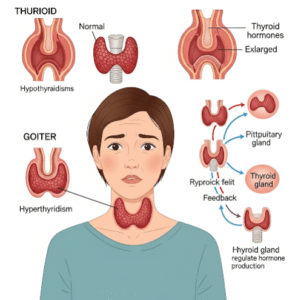Overview
Pallister-Killian Syndrome (PKS) is a rare and complex genetic disorder that affects multiple systems in the body. It is caused by the presence of an extra copy of the short arm of chromosome 12 (tetrasomy 12p) in some of the body’s cells, a condition known as mosaicism. PKS is typically characterized by severe developmental delays, intellectual disabilities, low muscle tone (hypotonia), distinctive facial features, and other health complications. Because of its rarity and variability, PKS often requires a multidisciplinary approach for diagnosis and management.
What is Pallister-Killian Syndrome?
Pallister-Killian Syndrome is a genetic condition caused by mosaic tetrasomy 12p, meaning that some cells in the body have four copies of the short arm of chromosome 12 instead of the usual two. This occurs due to a chromosomal abnormality that arises after conception, so it is not inherited from either parent. The severity and symptoms of PKS vary widely depending on how many and which types of cells carry the abnormal chromosome.
PKS affects both physical and cognitive development and often becomes noticeable shortly after birth or in early infancy.
Symptoms
Symptoms of Pallister-Killian Syndrome can vary significantly, but common signs and features include:
- Distinctive facial features: high forehead, wide-set eyes, flat nasal bridge, thin upper lip
- Developmental delays: delayed milestones like sitting, walking, and speaking
- Severe intellectual disability
- Hypotonia (low muscle tone) in infancy
- Feeding difficulties in newborns
- Hearing and vision problems
- Skin pigmentation anomalies (lighter or darker patches)
- Congenital heart defects
- Epilepsy or seizure disorders
- Cleft palate or high-arched palate
- Skeletal abnormalities
- Short stature
Not all patients will have every symptom, and the degree of severity can range from mild to profound.
Causes
Pallister-Killian Syndrome is caused by a genetic change known as mosaic tetrasomy 12p. This means that some cells in the body have four copies of the short arm (p) of chromosome 12 instead of the usual two. The extra chromosome material usually arises spontaneously during cell division shortly after fertilization, so it is not inherited.
The mosaic nature of the condition explains why the severity of the disease varies—some tissues may be affected while others are not.
Risk Factors
Since Pallister-Killian Syndrome is a sporadic genetic mutation, it typically does not run in families. However, some general risk-related factors include:
- Advanced maternal age: Like many chromosomal abnormalities, the likelihood may slightly increase with older maternal age
- No known environmental or lifestyle risk factors
- No sex or ethnic group is specifically more at risk
PKS occurs randomly and is extremely rare, affecting an estimated 1 in 20,000 to 1 in 25,000 live births.
Complications
Children with PKS may experience several health complications, including:
- Seizures: Often difficult to manage and may require long-term medication
- Feeding and breathing difficulties: Requiring medical devices or surgery in severe cases
- Intellectual and learning disabilities: Most children need specialized education and long-term support
- Heart or lung problems: Some may require surgical intervention
- Orthopedic issues: Including scoliosis or joint contractures
- Speech and mobility challenges: Often necessitating physical, occupational, and speech therapy
- Frequent hospitalizations: Due to infections or other medical complications
Prevention
Because Pallister-Killian Syndrome is not inherited and occurs randomly, there is no known way to prevent it. However:
- Prenatal testing through chorionic villus sampling (CVS) or amniocentesis may occasionally detect chromosomal abnormalities
- Genetic counseling is recommended for families with a previous history of genetic conditions, though recurrence in PKS is exceedingly rare
- Early intervention and regular developmental screenings can help improve outcomes through early supportive care
Treatment Option in Korea
South Korea offers advanced medical facilities and multidisciplinary care that are well-suited for managing rare genetic disorders like Pallister-Killian Syndrome. Treatment is supportive and symptom-focused, involving a range of specialists:
- Genetic Diagnosis & Counseling: Hospitals like Severance Hospital, Samsung Medical Center, and Seoul National University Children’s Hospital offer advanced genetic testing including FISH (Fluorescence In Situ Hybridization) and chromosomal microarray for accurate diagnosis.
- Developmental & Rehabilitation Services: Korean rehabilitation centers provide individualized physical therapy, speech therapy, and occupational therapy to support growth, learning, and communication.
- Neurology Care: Seizure management is available through pediatric neurologists using the latest medications and monitoring systems.
- Pediatric Surgery & Cardiology: Congenital defects (like cleft palate or heart abnormalities) can be corrected through surgery by skilled pediatric surgeons.
- Assistive Devices & Special Education: Korean healthcare providers also assist in sourcing medical equipment, feeding aids, and provide support for integration into special education programs.
- Integrated Traditional Medicine: For symptom relief and general well-being, some families use complementary Korean herbal treatments or acupuncture, integrated with mainstream care.
South Korea’s commitment to early intervention, high medical standards, and parental support programs makes it a favorable destination for managing complex pediatric genetic conditions like PKS.













